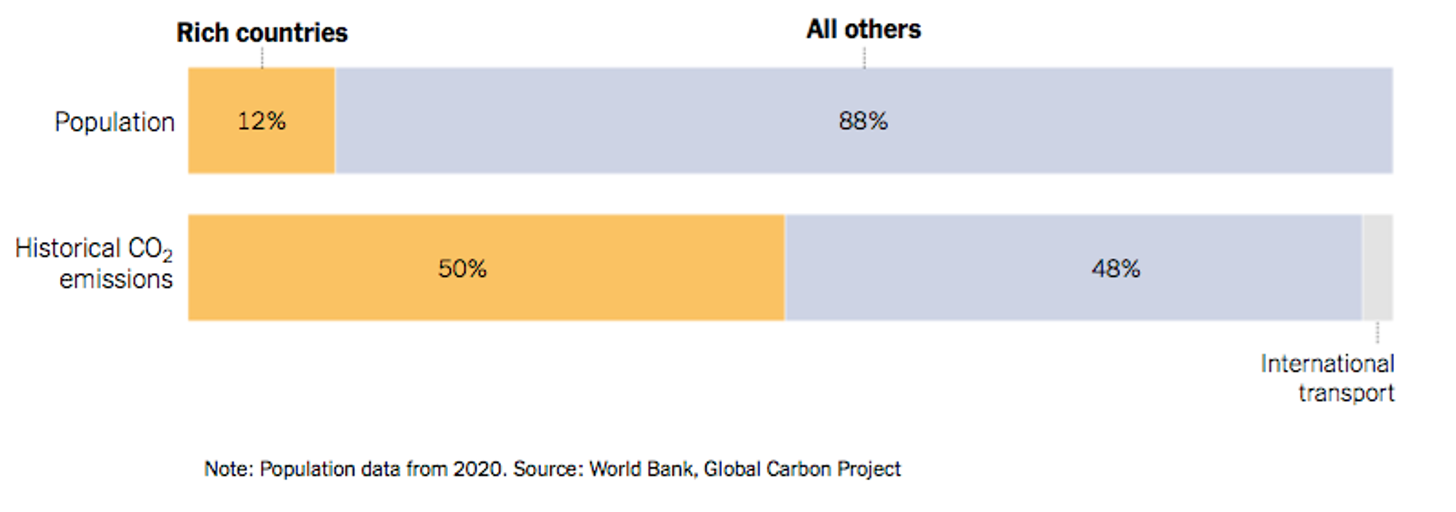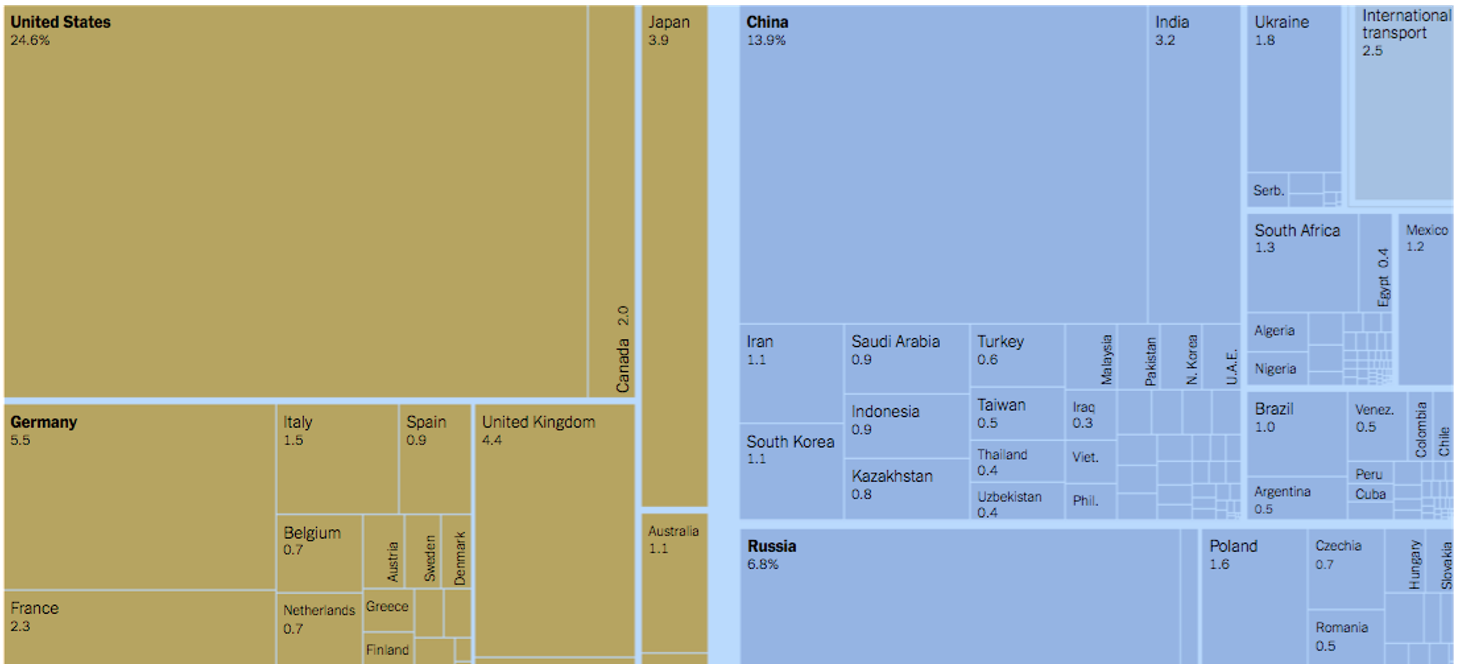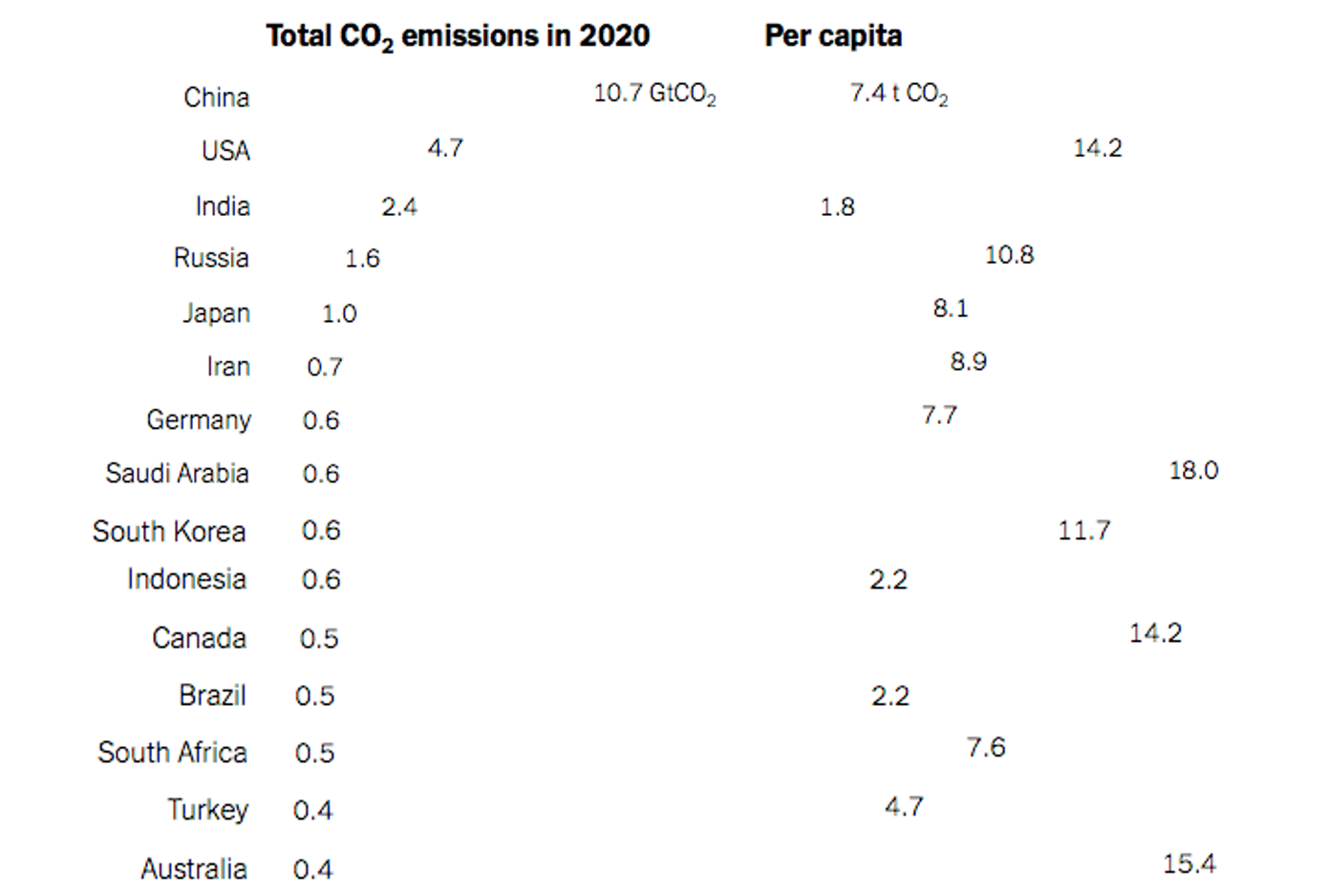marking COP (Conference of the Parties) 27which was held in Sharm El-Sheikh, gamma (Journal of the American Medical Association) and network magazines gammaalong with 250 other international journals, They published an editorial Calls for urgent action to address the climate crisis for Africa and the world at large.
The moral imperative to find a solution was made even more urgent by the fact that the summit was held in an African capital: drought in sub-Saharan Africa tripled from the decade 1970-1979 to the decade 2010-2019; Devastating cyclones affected 2.2 million people in Malawi, Mozambique and Zimbabwe in 2018. But it’s not just for moral reasons that all nations should worry about Africa: the acute and chronic effects of the climate crisis increase poverty, infectious disease, forced migration and conflict. whose effects have spread throughout globalized systems.
The Sharm el-Sheikh summit, which was scheduled to end on Friday, November 18, was extended to Sunday morning, both because of the chaotic Egyptian organization of the conference, which the participants stopped, and because of the many thorny issues that the conference negotiators dealt with. Almost 200 countries collided. Discussions have mainly centered on the goal of preventing global temperatures from rising by more than 1.5°C above pre-industrial levels by the end of the century. According to some experts, such a goal would require such drastic action as Be unreal; However, it is currently being undermined by the increasing use of coal by some countries, as an alternative to Russian gas.
What the seemingly small difference between a global temperature rise of 1.5° and 2° means was widely speculated on in a 2018 report by the World Health Organization.Intergovernmental Panel on Climate Change (IPCC), the main international body to assess climate change Barth Edde, the Norwegian Minister of the Environment, explained the matter at the Sharm el-Sheikh meeting: «In the second case, entire countries represented here will simply disappear from the face of the earth and many cities in which we live and love will not exist. more”.
Meanwhile, the planet has already warmed by an average of 1.1 degrees Celsius, and for thirty years developing countries have been urging rich and industrialized countries to offset the costs of the resulting disasters.
Who has to pay for the damages caused to the populations of the most fragile and least industrialized countries, and therefore not responsible for the ecological catastrophe?
In the context of Global Carbon Project The responsibilities of rich countries in increasing greenhouse gases have been determined: 23 developed countries (which make up 12% of the world’s population) are responsible for half of carbon dioxide emissions and 150 developing countries for the other half.
To go into detail, the “guilt” distribution is shown as follows:
Another measure of accountability and fairness is the distribution of per capita emissions. For example, in 2020, India as a whole produced about 7% of the world’s carbon dioxide emissions (about as much as the European Union and half of the United States); But India has a larger population than the United States and the European Union combined, and it is much poorer, with hundreds of millions of people without reliable access to electricity. As a result, India’s emissions per capita are much lower than in the other two regions; Reverse Thinking explains Australia’s values.
Despite the indisputability of these statements, until the end of the Sharm el-Sheikh conference, the two main Western blocs, the United States of America and the European Union, backed away from the idea of creating an aid fund for fragile states. Even its definition has been controversial: what developing countries (and climate activists) call “compensation” is called “loss and damage facilitation” by diplomats, Westerners, and especially Americans. Above all, it is important that the latter is not legally responsible for greenhouse gas emissions and is therefore legally obligated to pay, and therefore can only be cashed on a voluntary basis.
To win this battle, at an annual conference of the parties steeped in law, where diplomats argue for hours over the use of “petition” versus “request,” and where a once misspelled comma disrupts negotiations (the 2015 Paris conference had nearly collapsed over The dispute over the use of “should” vs. “should”) brought in the United States attorney Sue Beniaz, the daughter of a woman who was spared because she was on Oskar Schindler’s list.
Beniaz, a veteran of the U.S. State Department, is widely known as an expert at finding the elusive word or phrase that can bring opposing leaders to agreement; You know where the semicolon is buried in all the important UN conventions, because you helped put it there, even writing Academic article On how punctuation is used in climate treaties.
Yet the 134 developing countries in Asia, Africa, Latin America, the Caribbean and the South Pacific that threaten their very existence with a crisis they did not create have been relentless in their demand for justice. The group was led by Pakistan, a reminder of the damage done by climate change (summer floods inundated a third of the country and caused more than 1,500 deaths and $30 billion in damages), against low emissions (less than 1% of global).
An agreement to set up the fund was reached early Sunday morning.
Many details have not been finalized yet, and a committee of representatives from 24 countries will work over the next year to determine what form the fund should take, what countries it should contribute to and which countries the money should go to, and how to involve the multilateral development banks. (MDBs). ) and the World Bank and the International Monetary Fund or regional banks such as the Asian Development Bank and the African Development Bank, which still do not issue soft loans for projects related to climate change.
Among the biggest hurdles is the US and EU claim that China is not among the countries receiving, but among the countries providing money (as the world’s largest emitter of greenhouse gases and the second largest economy), even if the UN currently classifies China as a developing country. , which makes her eligible for climate compensation.
Moreover, it must be said that there is no guarantee that rich countries will actually deposit money into the Fund, given that their previous commitments have not been met.
The EU gave (practically extra time) insisting, however, that aid could include, in addition to direct payments, various options: some European countries, for example, have voluntarily promised more than $300 million in the model. for the insurance programme.
The United States, which has released more greenhouse gases into the atmosphere than any other country in history, came in last, but although American diplomats agreed to build the fund, it is clear that the money would have to be appropriated by Congress; If the Biden administration, which was asking for $2.5 billion in climate relief, only got one when Democrats controlled both chambers, it seems inconceivable that a climate damage payout would be approved with Republicans controlling the chamber.
This explains why Mohamed Addo, CEO of Power Shift Africa, which seeks to mobilize the entire continent for climate, calls the agreement an “empty bucket”: we hope it will be rejected.

“Infuriatingly humble alcohol fanatic. Unapologetic beer practitioner. Analyst.”





